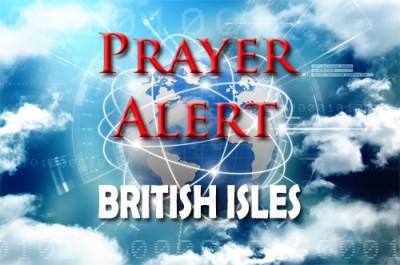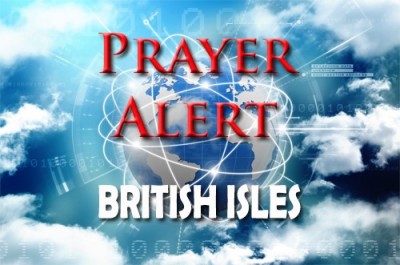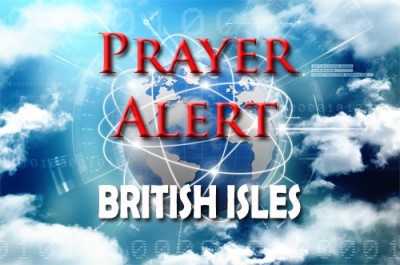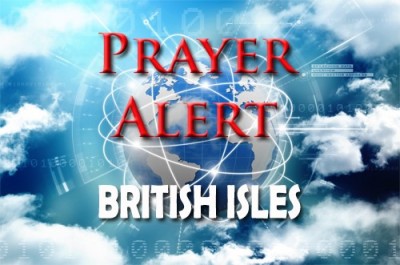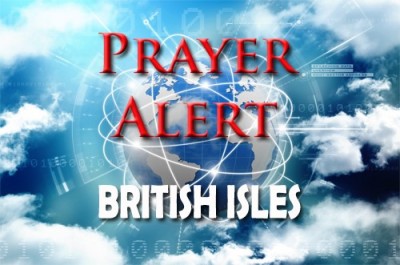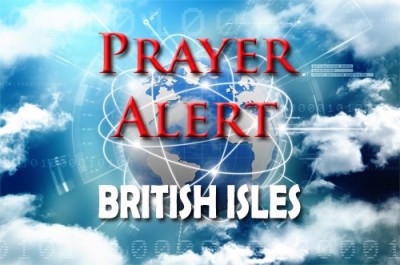14-year-old Mohammed, a Muslim street child without parental supervision, attended a local Sunday school for the entertainment and free food. Then he was challenged to receive Jesus. He said, ‘I waited until I got home, then at 3:00 am I said, “Lord Jesus, please help me. I am desperate, helpless, hopeless. I cannot take it any more. I need you.” Then within half an hour I slept, and I woke up in the morning excited. I took one of the many New Testaments from Sunday school and put it in my school bag and went to school and started telling people about my experience.’ He was thrilled that he had found the answers to his troubling questions, not where he expected in Islam, but in Christianity, and he boldly told everyone about Jesus. This turned more than a few heads. God had a plan for his life; to read his wonderful story, click the ‘More’ button.
USA: movie based on worship song
10 Dec 2020Hollywood filmmaker DeVon Franklin and worship leader and Pastor Cory Asbury have teamed up to turn a worship song, Reckless Love, into a feature film. Based on Asbury’s difficult relationship with his father, the movie explores how that vital relationship impacted the singer’s personal view of God. Cory has worked with the Bethel Music Collective since 2015, and this song has been number one in Billboard's Christian Songs chart and is sung in churches globally. He was approached by Franklin, the Christian filmmaker behind Miracles of Heaven, Breakthrough and the animated Christmas film The Star. When he was asked to share his story he was hesitant. Franklin said, ‘Cory, what if this film is bigger than you and your story? What if it brings healing to your dad and dads all across the world?’ That question decided it.
Brexit deal in the balance
10 Dec 2020After months of talks, the UK’s vision of the future does not appear to be compatible with the EU’s viewpoint. For the first time in a world of highly moveable deadlines, Boris Johnson and EU president Ursula von der Leyen announced that a final decision must be taken by 13 December. There is a chance still that a couple of frantic days could result in a change. Please continue to pray for God to be at the core of all the negotiations between Lord Frost and Michel Barnier. Meanwhile, the EU has published contingency plans - should talks collapse. The plans will aim to ensure basic UK-EU air and road connectivity, as well as allowing the possibility of fishing access to each other's waters. See also
Vaccination programme
10 Dec 2020On 8 December a mass Covid-19 vaccination programme began, starting with the elderly, health workers, and carers. The next day, after two NHS workers suffered allergic reactions to the vaccine, a warning was issued that such people should not be given it. Both women have a significant history of allergic reactions and need to carry an adrenaline auto-injector with them. There are still many questions that the public have over the vaccine’s safety: see Many are asking, ‘How can we be sure the vaccine is safe with such a short testing period?’ Pray for the WHO, scientists, and experts on human medicine to be given enough media coverage to answer all fears and questions clearly, so that the anti-vax misinformation in social media is silenced. See also
Catholic bishops comment on vaccine
10 Dec 2020Catholic leaders are encouraging people to receive Covid vaccines despite some ethical concerns regarding their creation, and fears of committing a sin by being immunised. The bishops’ conference has urged people to disregard the rumours that the AstraZeneca vaccine may have been made from aborted foetal tissue, namely the lung tissue of an aborted male foetus. However, researchers at the University of Bristol said that the aborted tissue was not part of the vaccine, but only used for testing it. While the researchers said they injected the vaccine into MRC-5 cells derived from an aborted foetus to test its effectiveness, the vaccine itself does not contain MRC-5 cells.
Making churches vaccination centres
10 Dec 2020The Church of England says it is admirable that many churches want to be vaccination centres, but they need to think about the practical implications, such as potentially leaving the church unable to hold services for up to a year. With the Pfizer / BioNtech vaccine being rolled out already and the prospect of two more vaccines on the way, venues across the country will need to be temporarily converted into vaccination centres in order to inoculate the population. The Royal College of Nursing has said, ‘Buildings with the capacity for large-scale vaccination options such as sports and leisure centres, community centres and religious venues may offer the potential to facilitate a mass throughput of people.’ Vaccination centres are also decided by local NHS trusts with local authorities, GPs, and pharmacies. The Church of England has published guidance about what they need to consider before offering: see
The pandemic and families
10 Dec 2020Year-end school vacations will be lengthened in several countries to increase the time for social distancing. Many believe this policy will create more stress for parents juggling jobs and family. A national survey of 2,559 parents in June found a positive side for families and marriages in pandemic lockdown. Couples considering divorcing dropped by a third, and another survey revealed 25% of parents were getting on better with their children, with just 4% reporting worsened relationships. The media reported these findings as ‘weird but true’. However while lockdown affirmed marriage commitment, one in five cohabiting parents believed their relationship had worsened. They were more likely to be unhappy, get on each other’s nerves, or quarrel. Also, when schools were closed, many children began to appreciate the privilege of going to school and enjoyed having more time with their parents, improving family closeness during the corona time.
Anti-semitic knife attack at M&S
10 Dec 2020A 57-year-old Muslim man has been arrested after stabbing two women in a Marks and Spencer store in Burnley. During the attack the man shouted anti-Semitic expletives. Whilst police say it is not being treated as a terror attack, a counter-terror team is investigating whether the double stabbing had a jihadist element. The injuries to the two women are serious but not life-threatening. Jewish News reports that the Community Security Trust, a charity charged with defending Jews in Britain, is working with police, but revealed few further details. The police said, ‘We recognise that this incident will have caused concern in the community. We have a dedicated team of officers and staff carrying out enquiries and extra patrols.’


